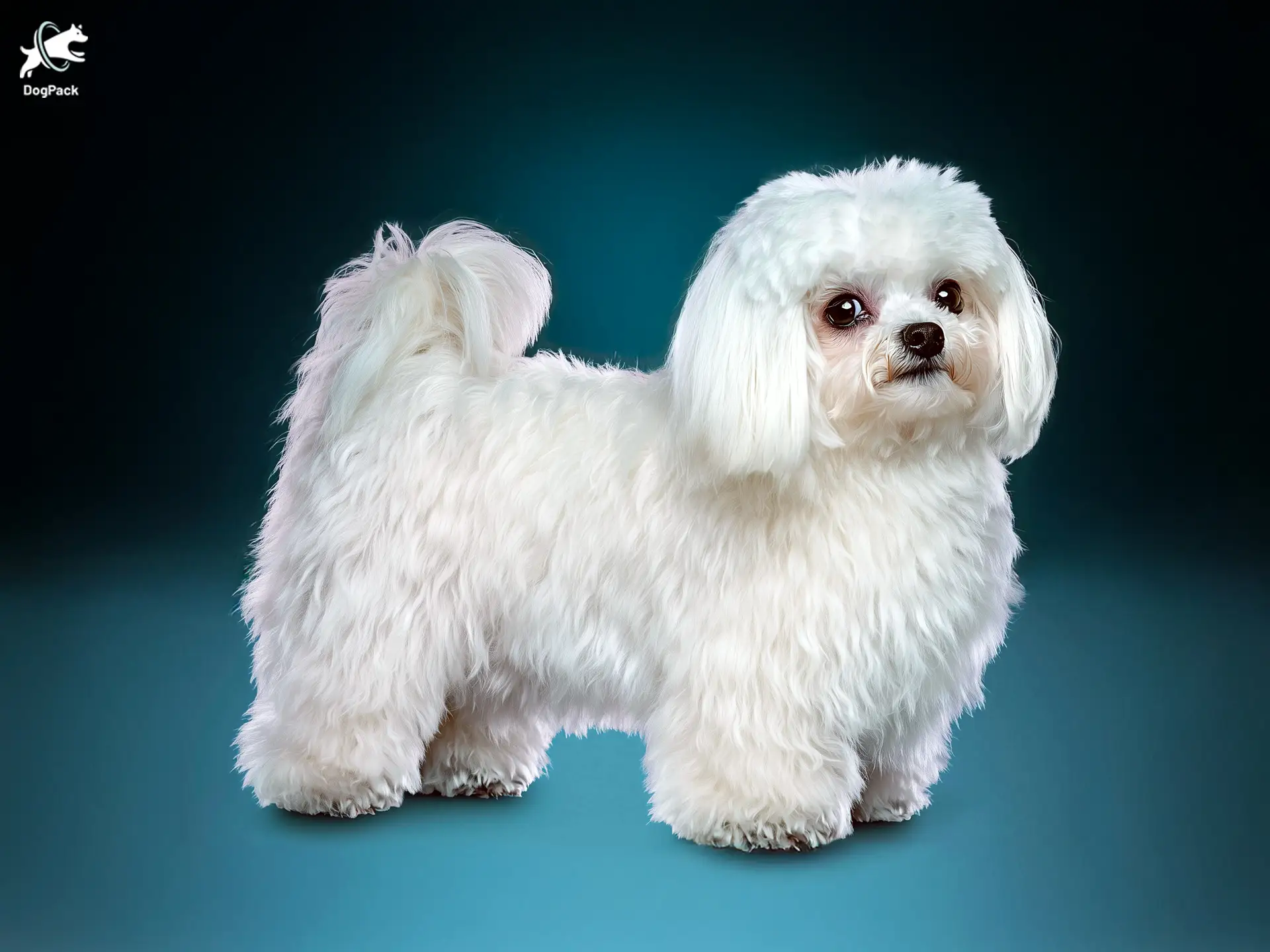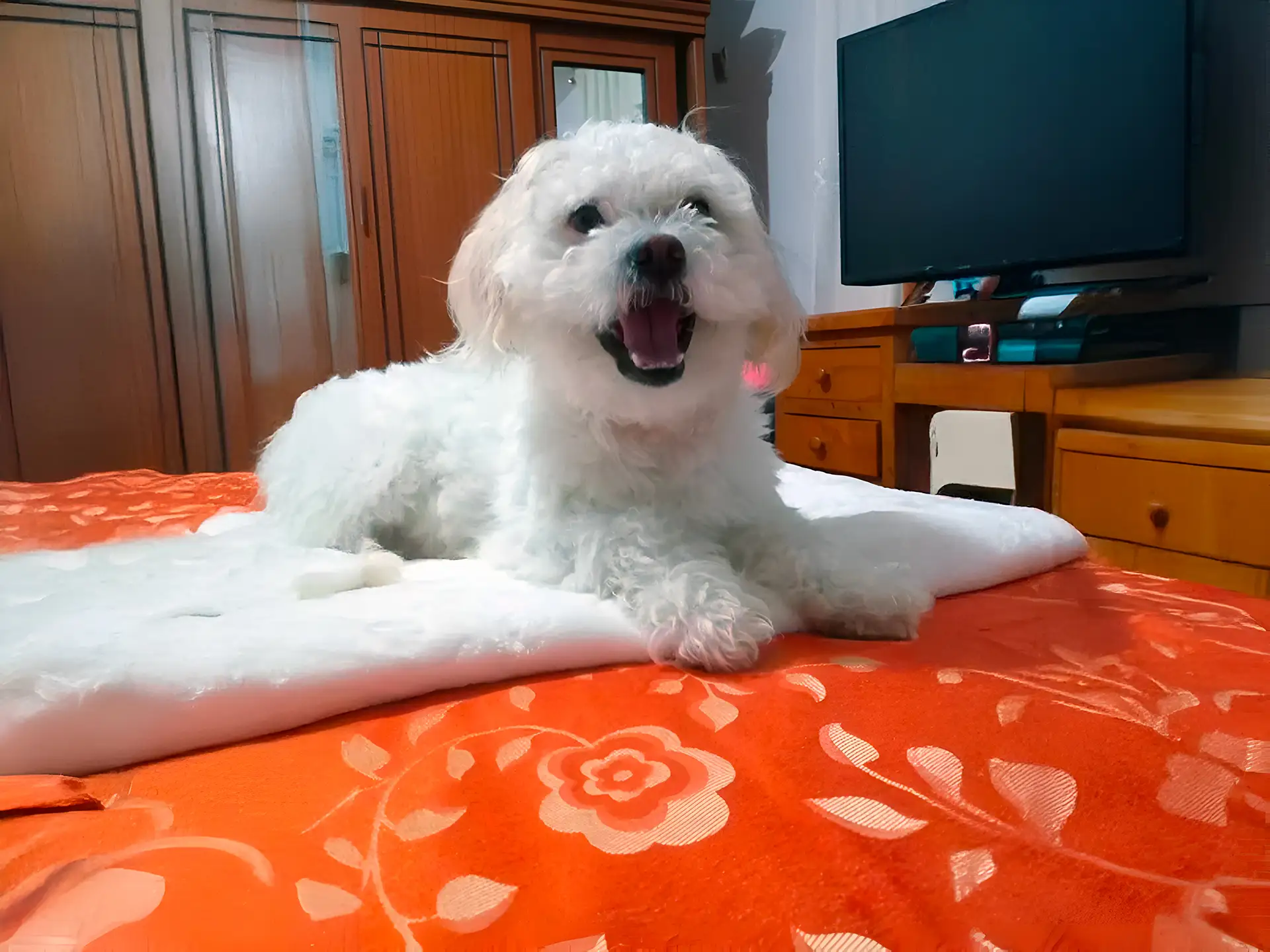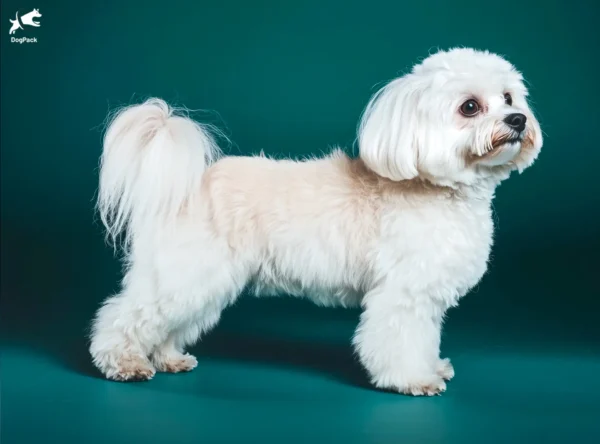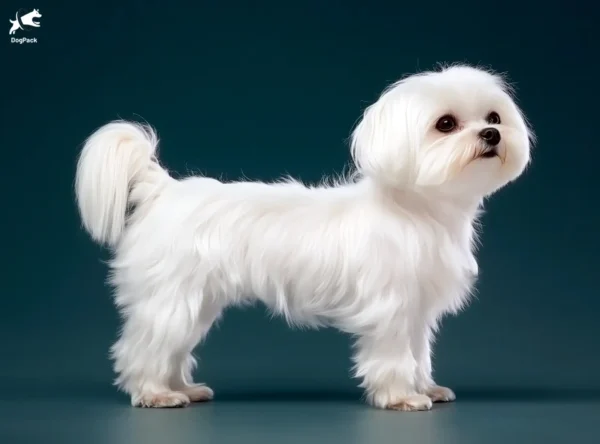Bolognese Dog Breed Info & Overview
The Bolognese dog, a rare Italian breed, is cherished for its affectionate nature and fluffy, cotton-like coat. Known for their charming personalities, these small dogs are loving companions that bring joy to any household. With their gentle temperament and adorable appearance, the Bolognese makes a wonderful pet for those seeking a devoted and delightful companion.
Characteristics
Pictures
Breed History
The Bolognese dog traces its lineage back to the aristocratic circles of Bologna, Italy, where they were cherished as gifts among nobles during the Renaissance. Their role as companion dogs made them a popular subject in Renaissance art, often depicted lounging in the luxurious homes of Italian elites. This breed was highly valued for its gentle temperament and devotion.
Though their popularity waned over time, dedicated breeders in Europe worked to preserve the Bolognese dog. In recent decades, they have experienced a resurgence among enthusiasts who appreciate their history and charm. Despite their ancient roots, they remain relatively unknown outside their homeland.
The breed’s name, derived from the city of Bologna, reflects their Italian heritage. Owning a Bolognese dog today is akin to embracing a piece of living history, as they continue to embody the elegance and grace once adored by European aristocracy.
Temperament, Personality
Bolognese dogs are known for their unwavering devotion to their families. Their calm and affectionate nature makes them ideal companions for those seeking a loyal and gentle pet. They bond closely with their favorite person, often following them from room to room, content to be by their side.
They thrive in a calm household environment, making them well-suited for seniors or families with children. Their patient demeanor means they tolerate gentle play but prefer quieter interactions. Early socialization helps them adjust to strangers and other pets, reducing any initial shyness.
Their intelligence and eagerness to please make them easy to train, though they respond best to positive reinforcement. Harsh training methods can make them anxious, so it’s important to use a gentle approach. With love and attention, Bolognese dogs blossom into well-behaved and affectionate companions.
Physical Characteristics
The Bolognese dog is a small, sturdy breed, standing about 10–12 inches tall and weighing 5.5–9 pounds. Their most striking feature is their all-white, fluffy coat, which gives them an endearing, cloud-like appearance. The coat is non-shedding but requires regular grooming to maintain its texture and prevent matting.
Their dark, round eyes stand out against their white fur, giving them an expressive and intelligent look. The compact, square-shaped body is complemented by their slightly wavy coat, which often grows in a way that adds to their charming, plush appearance.
One of their most distinctive features is the soft, cotton-like texture of their coat. This fluffy appearance, combined with their small size, makes them a popular choice for those seeking a dog that retains a “puppy-like” look throughout its life.
Health Issues
Though generally healthy, the Bolognese dog can be prone to a few hereditary health concerns. Like many small breeds, they are susceptible to joint issues like patellar luxation and hip dysplasia, which can affect their mobility as they age. Regular vet checkups can help detect these issues early.
Eye conditions such as cataracts or progressive retinal atrophy may also develop over time. Monitoring their vision through annual eye exams is essential for catching early signs of problems. Responsible breeders screen for these issues to help reduce their prevalence in the breed.
Dental care is crucial, as small breeds often experience dental issues. Regular teeth brushing and providing dental chews can help maintain good oral hygiene, preventing periodontal disease and tooth loss.
Grooming Needs
Maintaining the Bolognese dog’s signature fluffy coat requires a commitment to regular grooming. Their non-shedding, hypoallergenic coat is prone to tangles and mats, so daily brushing is recommended to keep it soft and manageable. Many owners opt to keep their coat trimmed short for easier maintenance.
Regular baths every three to four weeks help maintain their pristine white coat. Be sure to pay attention to the areas around their eyes and mouth, as these spots are prone to tear staining, which can dull their appearance.
Nail trimming and ear cleaning should be part of their grooming routine. Keeping their ears free of wax buildup and trimming their nails will help them stay comfortable and avoid infections. Regular grooming sessions also help to check for any skin issues or parasites.
Exercise Requirements
Despite their small size, Bolognese dogs enjoy regular exercise, though they don’t require as much as larger, more active breeds. A 30-minute daily walk combined with some indoor playtime is typically sufficient to keep them healthy and happy. They also enjoy activities that engage their mind, such as puzzle toys and training games.
Their adaptable nature makes them suitable for various living situations, from apartments to larger homes with yards. Although they don’t need extensive exercise, they do enjoy being active and spending time with their families, whether playing indoors or exploring the neighborhood.
Dog sports like obedience and agility are excellent ways to keep them engaged. Their intelligence and eagerness to learn make them natural participants in such activities, and they excel in environments that challenge both their bodies and minds.
Training Tips
Training a Bolognese dog is a rewarding experience due to their intelligence and eagerness to please. Positive reinforcement, such as treats, praise, and play, works best with this sensitive breed. They are quick learners and can master basic commands with consistency and patience.
Socialization is key to raising a well-rounded Bolognese dog. Exposing them to different environments, people, and other pets from a young age helps build their confidence and reduces anxiety. Their calm nature makes them more adaptable to various situations, provided they receive early exposure.
Given their sensitivity, harsh training methods should be avoided. They respond far better to gentle correction and encouragement. Maintaining a structured routine will help them feel secure and happy, allowing them to thrive in their role as a beloved companion.
Nutrition, Diet
Bolognese dogs require a diet tailored to their small size and moderate energy levels. High-quality, small-breed dog food is recommended, with ½ to 1 cup of dry kibble per day, split into two meals. Protein-rich food supports their muscle development, while omega-3 fatty acids help maintain a healthy coat.
Due to their small size, it’s essential to monitor their portions to prevent overfeeding, which can lead to obesity and joint problems. Choosing food that supports dental health is also beneficial, as small breeds like the Bolognese are prone to dental issues.
Consulting with your vet about the right diet for your individual dog ensures they receive the appropriate nutrients for their age, weight, and activity level. Regular checkups help adjust their diet as needed to keep them healthy and active.
Adoption, Breeders
If you’re interested in adding a Bolognese dog to your family, consider reaching out to the American Bolognese Club for breeder referrals and adoption resources.
Adoption is another wonderful option. Petfinder and breed-specific rescues often have Bolognese dogs in need of loving homes. Adopting a dog not only provides a home to a dog in need but also supports ethical practices in pet ownership.
Always ask breeders for health clearances and, if possible, meet the puppy’s parents. This ensures you are adopting from a responsible source and getting a healthy, well-socialized dog that will thrive in your family environment.
Family Pet?
The Bolognese dog is a perfect fit for families seeking a gentle, affectionate companion. Their small size and calm demeanor make them excellent for apartment living, while their patience and loyalty mean they bond closely with family members of all ages, from young children to seniors.
They enjoy being part of family activities and get along well with other pets when properly introduced. Their adaptable nature makes them easy to integrate into households with varying activity levels, though they prefer quieter environments.
One consideration is their tendency to form strong attachments, which can lead to separation anxiety if left alone for long periods. Families that can provide plenty of love and attention will find the Bolognese dog a perfect, devoted companion.
Right For You?
The Bolognese dog is ideal for individuals or families looking for a small, affectionate dog that thrives on close companionship. Their low-shedding, hypoallergenic coat makes them a great option for those with mild allergies, and their calm demeanor suits both active and relaxed households.
If you have the time to dedicate to grooming and don’t mind a dog that follows you everywhere, this breed could be a great match. First-time dog owners will appreciate their easygoing nature and manageable exercise needs.
However, they do require regular grooming and attention, so if you can meet these needs, the Bolognese dog will reward you with endless loyalty and affection.
Conclusion
The Bolognese dog is a rare gem in the canine world—a blend of historical charm and modern-day companionship. Their affectionate nature, coupled with low-shedding coats, makes them ideal for many types of households. If you’re ready to welcome a devoted and delightful friend into your life, the Bolognese dog might just be the perfect companion you’ve been searching for.
FAQs
-
How well do Bolognese dogs handle being left alone?
Bolognese dogs can develop separation anxiety if left alone for extended periods. They prefer being with their family and do best in homes where they receive plenty of attention and companionship.
-
Are Bolognese dogs good with children?
Yes, Bolognese dogs are gentle and patient, making them great companions for children. However, it’s important to supervise interactions, especially with younger kids, to ensure proper handling and mutual respect.
-
How often should I bathe a Bolognese dog?
Bolognese dogs require bathing every 4–6 weeks, or as needed, to keep their coat clean. Regular grooming, combined with bathing, helps maintain their fluffy and mat-free appearance.
-
Do Bolognese dogs shed a lot?
No, Bolognese dogs have a low-shedding coat, which is why they are considered hypoallergenic. Regular grooming helps manage their minimal shedding and keeps the coat in good condition.
-
How intelligent are Bolognese dogs?
Bolognese dogs are highly intelligent and respond well to training. They enjoy learning new tricks and commands, making them a great choice for owners who like to engage their pets mentally.
Breed Ratings
The Bolognese dog is smart and responds well to positive reinforcement training.
They enjoy playtime but are equally happy relaxing with their owners.
Moderate energy levels make them adaptable to various lifestyles.
Low shedding is a plus for those seeking a cleaner home environment.
They have a low prey drive, making them less likely to chase small animals.
Their coat requires regular maintenance to keep it tangle-free.
Eager to please and intelligent, they train well with gentle methods.
They prefer constant companionship and may not tolerate being alone for long.
Generally quiet but will alert to strangers or unusual sounds.
Minimal drooling adds to their appeal as a tidy pet.
Friendly with other dogs, especially when socialized early.
A generally healthy breed with a few genetic health concerns.














